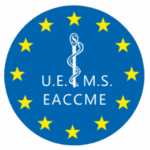20th Annual Meeting of the European Delirium Association
Hamburg, Germany, 12 - 14 NOVEMBER 2025
Join us for the Annual Meeting of the European Delirium Association 2025 – “Delirium: Many Factors – One Approach”! Since its founding in 2007, the European Delirium Association (EDA) has been dedicated to advancing interdisciplinary and international scientific exchange in delirium research. The 2025 Congress invites you to be part of this vibrant network and to contribute to shaping the future of delirium science and care.
The event opens with a Pre-Congress Day, offering a high-level "Delirium Pathophysiology Symposium" on the latest findings in molecular medicine and neuroscience, alongside a local clinical-practical program tailored to healthcare professionals providing daily delirium care. Practical workshops further enrich the program.
Over two main congress days, leading researchers from geriatrics, psychiatry, neurology, anesthesiology, intensive care medicine, psychology, and neuroscience will come together to share insights, discuss novel research approaches, and foster interdisciplinary collaboration. Special highlights include keynote lectures, best abstract sessions, poster walks, the inaugural Young EDA Session to promote early-career researchers, guest session hosted by the American Delirium Association and the opportunity to visit an industry exhibition showcasing the latest developments in delirium care and research.
Take this opportunity to expand your knowledge, engage in scientific exchange across disciplines, and build lasting international networks. We look forward to welcoming you to an inspiring and forward-looking EDA Annual Meeting 2025 – register now and be part of it!


The Conference starts:
Keynote

Day I:
Dr. Finn Radke, MD, PhD, Department of Regional Health Research, Nykøbing Falster Sygehus & University of Southern Denmark: United Against Delirium: Interdisciplinary Approaches of the Safe Brain Initiative

Day II:
Professor Markus Hausmann, PhD , Department of Psychology, Durham University: Gender differences in brain functioning and cognition
Receive the latest EDA News!








